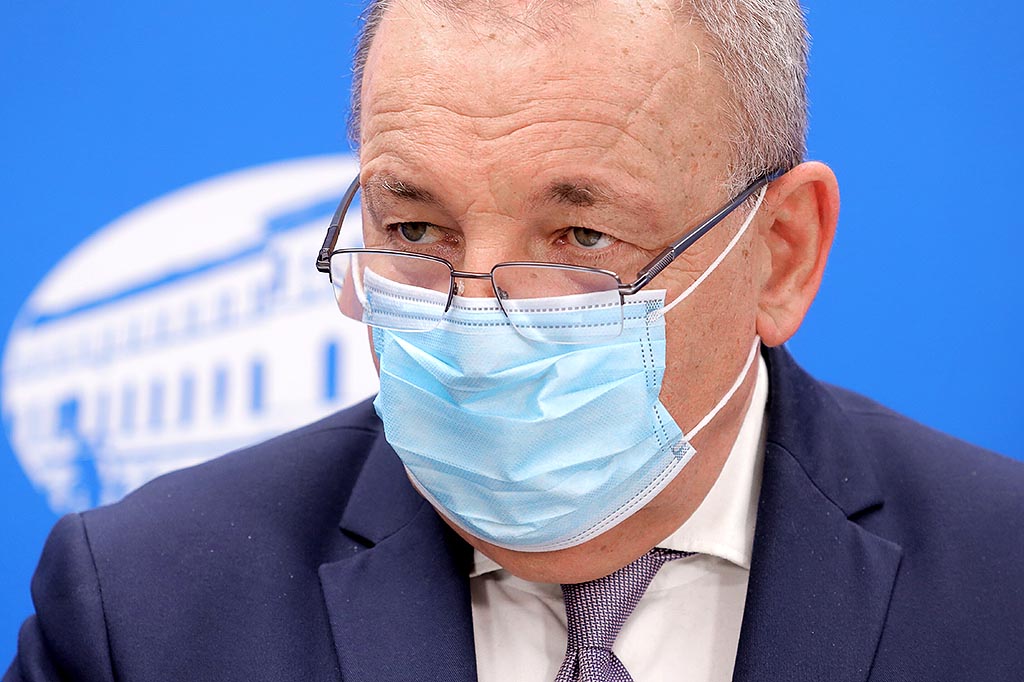By: Sara Rančigaj / Nova24tv.si
The Ministry of Finance is already preparing projects which will partially be financed with the European grants and loans. Priority will be given to projects, related to quality healthcare and digitalisation. “It is important that our projects are long-term, that they regulate the issues that we may not have dealt with very intensely in the past, which mainly relate to a higher quality of life for the elderly,” Šircelj explained. On the other hand, through intervention measures, they take care of the well-being of the population and maintain the condition of the economy, while the banking system remains stable.
At a virtual session on Monday and Tuesday, the Ministers of Finance of the European Union discussed the establishment of a 672.5-billion-euro recovery and resilience mechanism, a central part of Europe’s fund to tackle the novel coronavirus epidemic, as well as plans to challenge the bad loans, which are growing due to the covid-19 epidemic. The implementation of the recovery and resilience mechanism of the central part of the 750-billion-euro recovery fund is expected to take effect in the second half of February, after which the union members are expected to send formal recovery plans to Brussels. The Commission has two months to consider the national plans.
According to the Minister of Finance Andrej Šircelj, the Slovenian financial plan includes projects that will be financed with the European funds. “Both the loans and the grants.” Slovenia will thus receive some of the money it will not have to pay back, or it will be paid back through taxes. “It is important that our projects are long-term, that they regulate the issues that we may not have dealt with very intensely in the past, which mainly relate to a higher quality of life for the elderly,” Šircelj explained.
He emphasised that part of the fund will be used for quality healthcare in order to provide better health services to the population. Digitalisation and digital projects are also important for the whole of Europe, and they should be designed in such a way that, for example, people can follow certain services from home. “Distance learning is especially relevant these days.” According to the Minister, these digital projects must also be environmentally friendly, which is why the whole of Europe is committed to improving the environment until the year 2050 and beyond.
We have a stable banking system in Slovenia
According to the Minister, the banking system is doing very well, as we are currently in a position which is better than the positions of many other countries in the European Union. “Which makes sense in a way, mainly because we put a lot of money into the banking system, in 2012 and 2013, so we now have a stable banking system,” he explained. The banks are stable, able to support the economy and the population, even in times of crises. “I can say that we have the so-called robust system of banks that are properly capitalised, and I do not see a problem in this area,” he says, but stresses that we still need to be cautious, as the banks will also have to be part of the solution in the future, and not part of the problem.
The Eight Anti-Corona Legislative Package is being prepared, and Slovenia was among the states with the most intense welfare during the crisis. Šircelj pointed out that in the summer months, they did not anticipate that the second wave would be so intense and that it would cover such a large part of the population. “Health and the lives of the people come first. We have to persevere with that, and there is no dilemma here,” he is convinced.
Helping the population and the economy with the intervention measures
Secondly, the government is aware of the need to help the economy, but in any case, believes that they have reached the level where we need to primarily work on the economic recovery and, by extending the existing measures, ensure that the economy stays in the market as much as possible and that we do not extend the rights from the measures, but instead extend the existing measures. After all, we are in a period of vaccination, in a period when we can intensively reduce the spread of the virus, and in a period when we actually see the light at the end of the tunnel, while the path to that light is shortening every day. “Therefore, I am mainly focused on the times when these measures will no longer be necessary because we will simply no longer have the virus or the crisis,” he added at the end.

